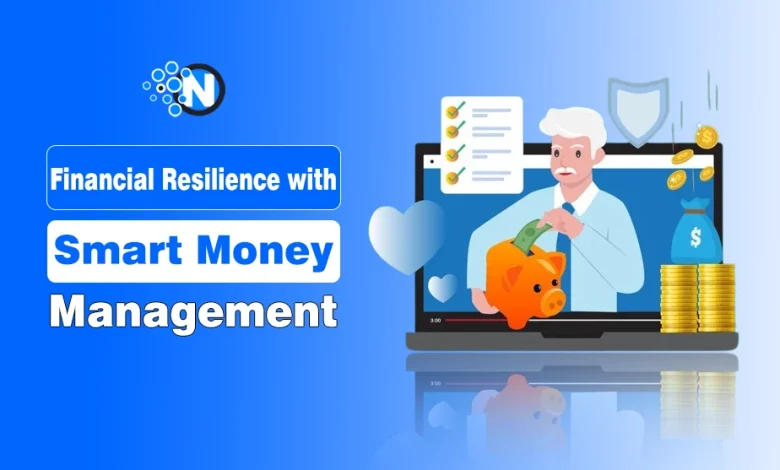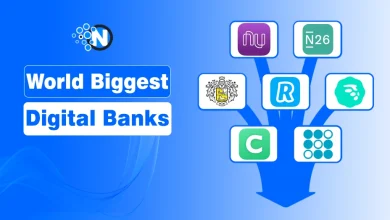Financial Resilience in a Rapid World Through Smart Money Management

An organized approach to spending, saving, and investing is the basis of effective money management. This starts with understanding your current financial situation in detail. Begin by evaluating all sources of income and assessing where money flows out.
According to a Ramsay survey, only 29% of Americans said they are financially stable now compared to when they were back in 2020. If you want to be one of them, you should start financial management right now.
Many people overlook small recurring expenses, thinking they have little impact. Yet, they can form a surprising portion of total costs over time. To gain control, track spending for at least one month to reveal hidden patterns that might go unnoticed.
Documenting each transaction, even those that feel insignificant, helps provide a fuller picture of where money is going. The goal is to categorize expenses—essentials, discretionary, and investments—so you can set priorities for each.
This article is all about gaining financial resilience in this fast-moving world through smart money management.
Let’s explore how!
The Power of Budgeting
An essential pillar in money management is budgeting. A realistic and flexible budget allows for life’s fluctuations while encouraging smart decision-making. Start with the basics by listing mandatory expenses—housing, utilities, groceries, and transport.
These are the essentials, the non-negotiable part of your budget. Then, set aside a portion for savings and investments. The remainder is discretionary spending. But discretionary doesn’t mean trivial; this is where budgeting skills come in handy.
Allocating a fixed percentage for enjoyment helps keep finances in check without feeling restrictive. You take a proactive step toward financial stability by consciously managing each dollar.

Building an Emergency Fund
After setting a budget plan, the focus shifts to building a reliable savings foundation. This is where the concept of an emergency fund comes into play. It is a financial safety net designed to cover unexpected expenses that could otherwise disrupt your financial plans.
An emergency fund is all about security and preparedness, but a common question arises: how much should you have in an emergency fund? Typically, three to six months’ worth of living expenses is recommended, though this amount varies based on individual circumstances.
The guiding principle is to have enough set aside to maintain stability in case of a job loss, health issues, or other unplanned situations. Building this fund should be a priority, starting with small, regular contributions until the target amount is reached.
Managing Debt Responsibly
Debt management is another key element of a sound financial strategy. While some debt, like mortgages or student loans, can be seen as investments, high-interest debt, such as credit card balances, often hinders financial growth.
Reducing this kind of debt needs both commitment and strategy. You can start by listing all outstanding debts, noting each’s interest rates and minimum payments. Focus on paying down the highest-interest debts first, as they accrue the most significant additional costs over time.
The goal is to reduce debt and increase available funds for other priorities. Each payment made toward reducing debt contributes to financial freedom, making saving, investing, and enjoying life easier without the constant pressure of outstanding obligations.
Investing for the Future
Investing is the next level of financial stability, enabling money to work actively toward future goals. But investing means jumping into the stock market with a plan. Instead, approach it with a solid understanding of your risk tolerance and financial goals.
For those new to investing, starting with low-risk options like bonds or mutual funds provides an entry point while building confidence. Research is essential. Before committing funds, familiarize yourself with asset classes, returns, and risk profiles.
By making informed choices, investments can become a steady and reliable means of growing wealth, complementing savings to create a robust financial portfolio.
Health and Financial Planning
As finances grow more complex, financial planning also involves a proactive approach to health and wellness. Medical expenses can unexpectedly impact financial plans, especially in emergencies. Health insurance is a basic safeguard, but choosing the right plan is crucial.
Ensure it aligns with your health needs and financial capacity, providing comprehensive coverage without excessive costs. Maintaining good health is also an indirect form of money management. Staying healthy means reducing future expenses on medical treatments and preserving both physical well-being and financial resources.
Gaining Financial Resilience
Developing behavior and mindset that support financial resilience is just as important to financial stability as managing finances. A sound financial mindset is flexible, striking a balance between self-control and the ability to adjust to changing circumstances.
You maintain a clear path toward long-term objectives by regularly revisiting financial goals and tracking progress. Additionally, financial literacy is an ongoing journey. Stay informed about changes in the financial world like new investment opportunities and updated tax regulations.
This knowledge helps make strategic and practical decisions, ensuring that finances grow alongside life’s evolving demands.
A Path Toward Stability
Taking time to assess, plan, and adjust finances can feel tedious, yet it’s a small price to pay for lasting financial security and peace of mind. Money management is not just a one-time task; it’s a long-term commitment to making choices that safeguard the future.
Every choice, from budgeting effectively to building an emergency fund, contributes to a stable foundation. In a fast-paced world where surprises can be the only constant, a solid financial strategy provides control, reducing stress and allowing for greater focus on personal growth and enjoyment.
Final Thoughts
The journey toward mastering money management is unique for each person, shaped by individual goals and life circumstances. Yet the principles remain consistent. Take time to evaluate, budget wisely, build a safety net, manage debt thoughtfully, and invest purposefully.
By following these steps, financial stability becomes not just an ideal but a realistic and achievable goal. And in a world that demands so much so quickly, having control over your finances brings invaluable freedom, helping you confidently navigate life’s challenges and opportunities.




